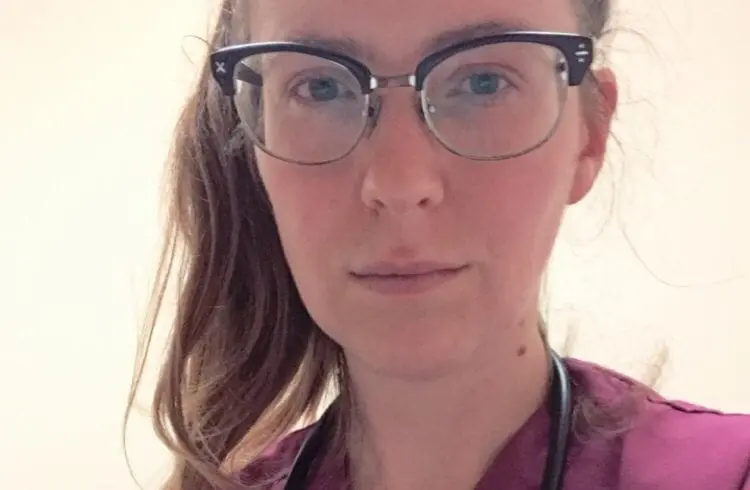My first Practical Nursing preceptorship took place at a residential care home, and I was very fortunate to work with and learn about caring for patients who suffer from Alzheimer’s disease and dementia.
It is not very often that students are allowed to work with such patients, especially when it’s a large group of students and in a clinical experience. This is because these patients can be easily agitated or confused, and seeing a bunch of strangers at once can startle them and set them off. They are usually kept within a locked unit with limited entry for their own safety. It is not considered a restriction of living, but rather a calm environment with limited stimuli to keep these patients’ zen while carrying out their daily living.

Working with dementia patients is difficult but very rewarding. It is different from working with cognitive patients who are capable of carrying a conversation and explain how they are feeling. Dementia patients often lose their speech or memory, so caring for them is sometimes like a guessing game when trying to figure out if they are in pain or if something is wrong. This makes the nurses’ job that much more difficult.
My preceptorship in term 3 was very rewarding and valuable. My preceptor taught me everything he knew, including his tips and tricks when patients would refuse their medications. I enjoyed my time at the care facility and have learned a lot about people dealing with dementia and recognizing signs of dementia.
Dementia is a complicated condition because it can be divided into so many different subcategories and is part of a complex nervous system.
Some of the different forms of dementia
Alzheimer’s disease (most common)
- Affects memory, thinking, and behavior
- Difficulty speaking, swallowing, walking (due to loss of memory)
Vascular dementia (caused by a stroke)
- Impaired judgment or difficulties making decisions
Dementia with Lewy-bodies
- Sleep disturbances
- Memory loss
- Hallucinations
- Impaired walking style
Frontal-temporal dementia
- Language difficulty
Mixed dementia
- Combination of two or more types of dementia
Wernicke-korsakoff Syndrome (from lack of vitamin B1)
- Often related to alcohol misuse
Traumatic brain injury, Parkinson’s disease, and Huntington’s disease can lead to dementia and/or memory loss.
Recognizing signs and symptoms of dementia early on may include frequent falling, long periods of gazing or staring, eating objects rather than food, always looking for the right words in everyday language/struggling to complete a sentence, losing the ability to read, or compulsive behaviors.
As a nurse, recognizing and understanding how dementia affects the patient will help determine what type of treatment is needed and the patient’s risks. In home care, we would try to keep each and every patient as calm as possible and within a safe distance from other patients so they wouldn’t react to triggers from other patients. There is so much to think about when caring for patients with dementia, and being placed in this home care made me think outside the box. It allowed me to put all skills and knowledge from school into action to complete my tasks as a nurse and care for these patients.
I was very fortunate to participate in an event with my preceptor and other staff called Change Day. It is put on by an organization in BC to help spread awareness and improve quality of care.
We observe this day by putting ourselves in the residents’ shoes for a day and experience how residents with certain disabilities struggle with simple life tasks, but cannot vocalize their discomforts.
It was different from learning about it in school because every patient reacts differently, especially since we know there are so many types of dementia. However, as Albert Einstein once said, “The only source of knowledge is experience,” and I am grateful for the opportunity I was given to interact with patients with dementia.
More to come on what happened during my Change Day experience and how I got involved. Stay tuned!
Check out this video of our Practical Nursing Program.










